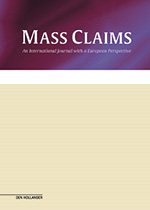Trade unions and ESG obligations: a private international law perspective on the CS3D
Aukje van Hoek and Etienne Pataut1This article looks at the role of trade unions in enforcing the Due Diligence Directive. Due to the international and extraterritorial character of the due diligence obligations of the company covered by the CS3D, its enforcement also has cross-border elements. The article covers both the role the directive ascribes to the unions and other worker representatives as such and private international law complications relating to standing in cross-border cases, applicable law and jurisdiction.
1. Setting the scene
In this article we want to draw attention to the role of trade unions in furthering corporate sustainability. The point of departure is the CS3D as it was adopted in 2024 (Directive (EU) 2024/1760 of 25 July 2024 Corporate Sustainability Due Diligence Directive). On 26 March 2025 the European Commission submitted a proposal to amend the provisions of a series of directives, amongst which the CS3D, in an attempt to reduce administrative burdens fo...
U heeft op dit moment geen toegang tot de volledige inhoud van dit product. U kunt alleen de inleiding en hoofdstukindeling lezen.
Wanneer u volledige toegang wenst tot alle informatie kunt u zich abonneren of inloggen als abonnee.


